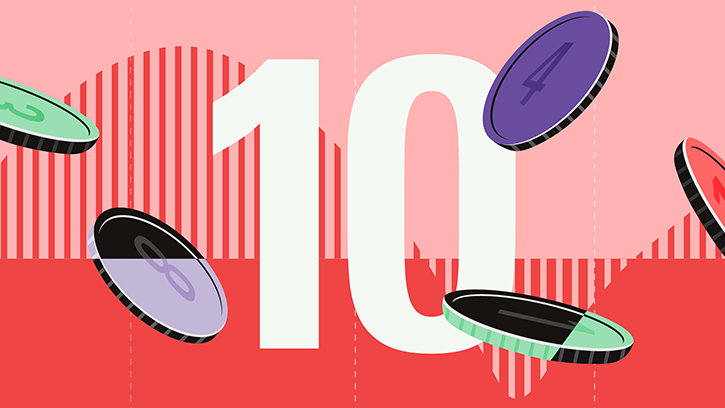Emma Wall: Hello, I'm Emma Wall. I recently had the chance to talk to Paul Read of Invesco Perpetual at the Morningstar Investment Conference on why not all bonds are bad. Here is what he had to say.
I thought I'd start with a very interesting point that you made about the fact that Apple a cash-rich company is yielding more than Spanish government bonds, who unfortunately aren't very cash rich at all. How did this come about?
Paul Read: Well, it came about, I mean the important thing to note, first of all is that we're talking about Apple issued in dollars and Spain issuing in euro; so its different currencies. But you could say that its Apples base currency or its currency of incorporation if you will, and for Spain it's the same thing.
So, the U.S. yield curve is higher in yield than the European government bond yield curve, so Apple in dollars price are over U.S. treasuries, and therefore at the moment yields more than Spain.
A year and a bit ago, it yielded considerably less. What I find interesting is without really saying that I think I'm not trying to imply that Spain is a bad risk or that Apple is a much, much better risk than Spain. But I think from the point of view of a U.S. investor and I think I'm trying to make these points now, which is that, what are the alternative investments for people? And where will they put their money?
If you're a U.S. investor, and Apple which is very, very – as you said, a very, very strong company with a great balance sheet and a lot of cash, is yielding more than a Spanish government bond.
My best guess is you're probably going to buy the Apple bonds, not the Spanish government bond in another currency. So, there are some forces that work in the markets, particularly in Europe with a huge demand for income across a lot of parts of my asset class, which maybe are at the margin leading us to some valuations that are kind of a stretched is that sort of the point I'm trying to make.
Wall: You said that there were forces of work in the bond market. One of them of course is tapering has begun, we're months in, but the U.S. is still buying a considerable amount of bonds despite the fact – smaller amounts than before. What happens when it really rolls out, say come November?
Read: I guess the honest answer is nobody knows for sure. I don't even know if the Fed knows for sure what – I think what the Fed thinks right now is that they really do want to get through this and finish with tapering, if nothing else, so that if things weaken and they have to come back then they're kind of got something to come back from.
We saw last year in, whatever it was September or October, that the economy disappointed a bit, housing market came off, and the Fed stepped away from – it delayed its tapering plans.
The good thing for the U.S. right now is that at the same time that the Fed is tapering, the budget deficit is improving, the government revenues are increasing, the economy is improving, and government expenditure has been flat for several years now.
So the metrics are improving at the same time, which maybe means that it won't be as – that the implications for the bond market are not as tough as they might have been a year ago or more. But it is a lot of – in a sense it is a lot of liquidity to be withdrawing from the markets, so it's – we need to make sure – you need to have a relatively robust economic background at the same time that you are doing this. If there is any faltering there, then it could create some market jitters.
Wall: Quite refreshing to hear you say at the beginning of your presentation that you're not here to sell your fund or to sell you asset class. Does that mean that all bonds are bad or where can you find that value?
Read: I mean I – not all bonds are bad by any means, and there are still things to do, and the fact of the matter is that, people need income. People as they get older and retire and they need income. They need relatively safe sources of income. The point I was trying to make in the presentation in part was that, an awful lot of those relatively safe sources of income have been lost. That has driven people probably, and I think this has been the point of QE and a lot of Central Bank policies driven people to take a little bit more risk than they used to want to. And that's come across a lot of asset classes.
So, they've bought emerging markets, they've bought equities when traditionally they were in deposits or fixed income. And there has been – across the risk spectrum, I think there has been that sort of domino effect as people have been forced by the lack of yield at the – in the short-end and in safe assets to take a bit more risk.
Wall: The great rotation.
Read: Well, it's – yeah, it's sort of partly a rotation. This is not to say that all bonds are bad. I think the really important thing is to tell people to manage expectations. There has been a big rally in most of my asset class; high yield is a 4% to 5% yield now. Emerging markets have rallied, treasuries have rallied, Europe has rallied, peripheral Europe has rallied, investment grade corporates have rallied, spreads have come in. So, it would be – it may be the case that this stays with us for a while, and I don't see the issues – I don't see the kind of issue that leads to a massive increase in defaults for example.
So, the kind of real hits to markets, I don't see that – I think it's about managing expectations, understanding that we're in a low yield environment and that may continue for quite a while. The kinds of returns that we made on all these parts of the asset class that over the last few years because of financial crisis and euro crisis were really cheap – that's gone, and now we're, it's about what kind of income we can make. And I think that's the gist of what I was trying to say.
Wall: Paul, thank you very much.
Read: Thank you.




























